1 July 1940
The 9th Battalion, King’s Own moved troops to cover the defence
of reservoirs at Rhyedr and Vrywny in North Wales.
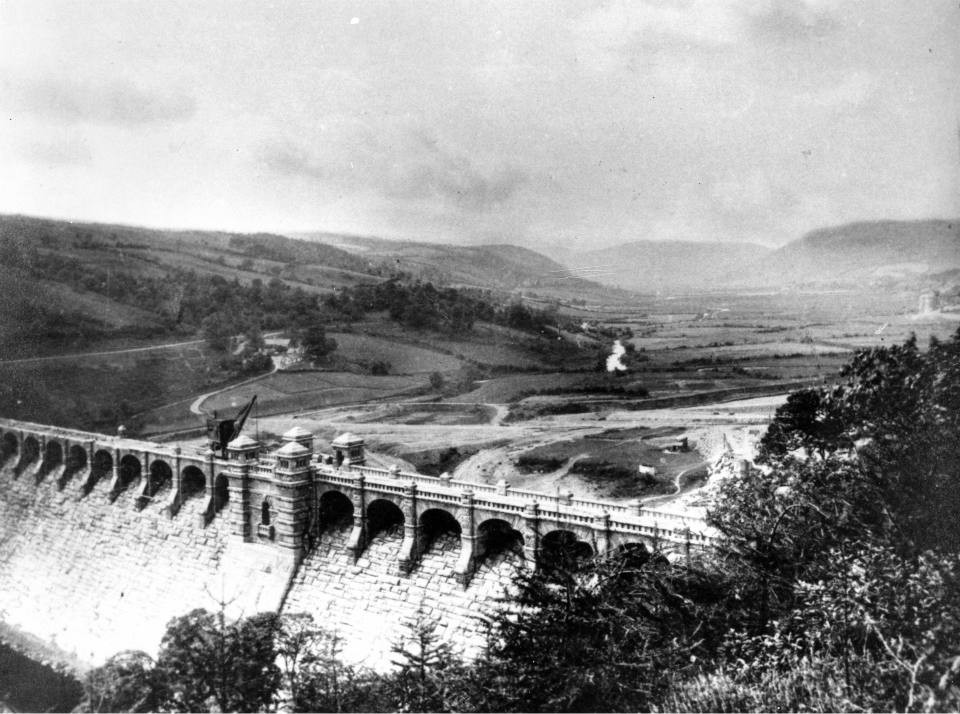
Philippe Pétain's government moved to Vichy. The
collaborationist state run from there came to be known as Vichy
France. |
2 July 1940
The passenger ship Arandora Star was heading for Canada
transporting German and Italian internees and prisoners of war
when she was torpedoed and sunk west of Ireland by German
submarine U-47. 865 lives were lost.
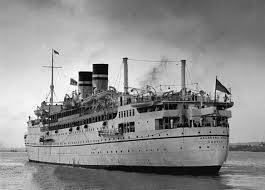 |
3 July 1940
the British attacked the French Navy base in Algeria at
Mers-el-Kébir, to ensure that the Vichy French government would
not turn the naval fleet over to the Germans.
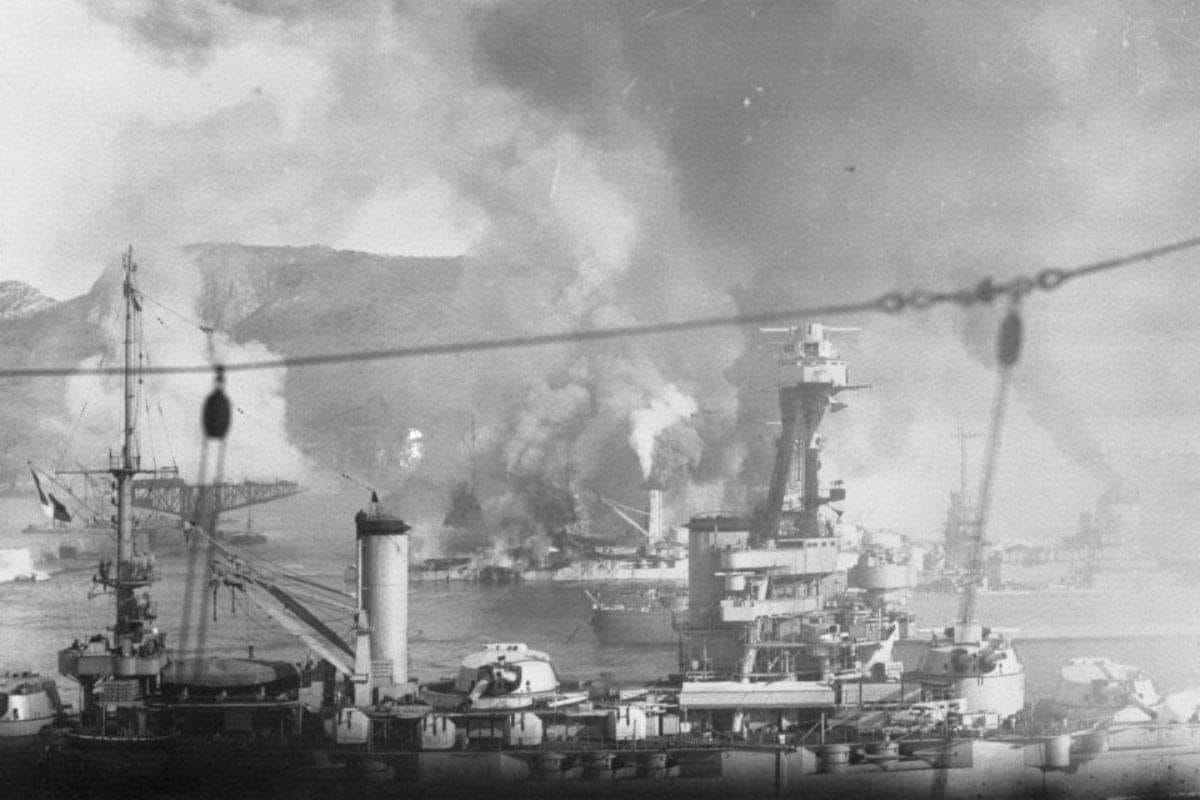
German aircraft bomb the city of Cardiff for the first time. |
4 July 1940
Prime Minister Winston Churchill expressed "sincere sorrow" as
he delivered a speech to the House of Commons explaining "the
measures which we have felt bound to take in order to prevent
the French Fleet from falling into German hands." |
5 July 1940
the Vichy French Government severed diplomatic relations with
Britain over the attack on Mers-el-Kébir and the destruction of
the French Naval Fleet. |
6 July 1940
The first German U-boat (submarine) base in France became
operational at Lorient.
German aircraft bombed the City of Plymouth for the first time.
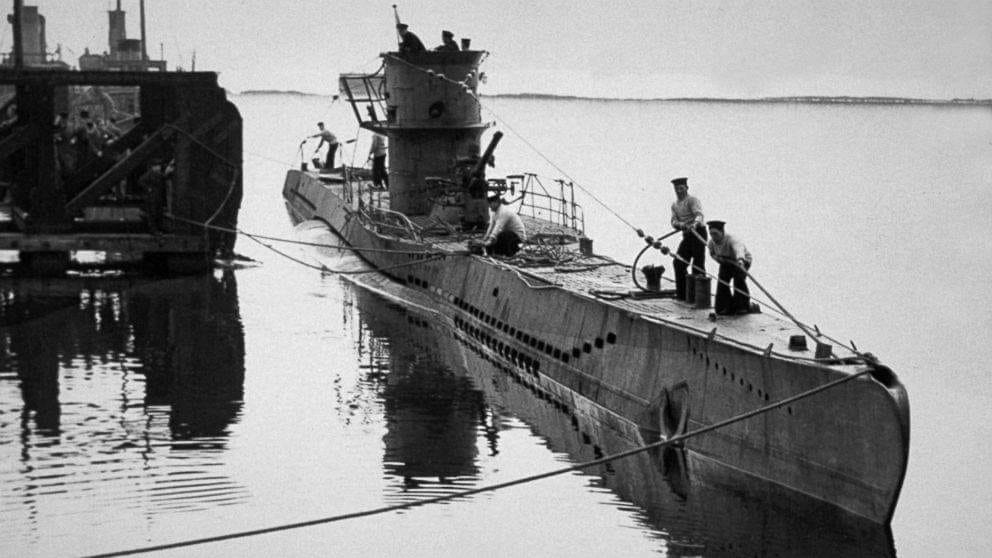 |
7 July 1940
The 8th Battalion, King’s Own moved from Criccieth in North
Wales, to Exmouth in Devon, to start coastal defence. Within a
couple of days the Battalion was divided between Exmouth,
Budleigh Slaterton, Sidmouth (pictured) and Ottery St. Mary.
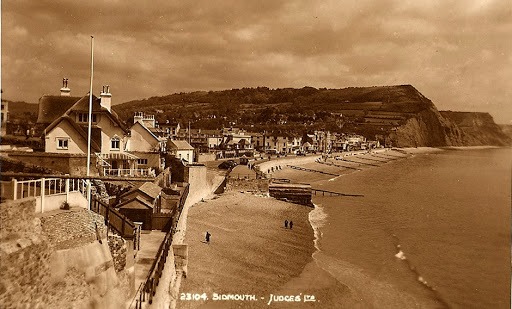 |
8 July 1940
British torpedo bombers targeted the French battleship Richelieu
at Dakar in French West Africa, today’s Senegal. inflicting
damage but failing to sink her.
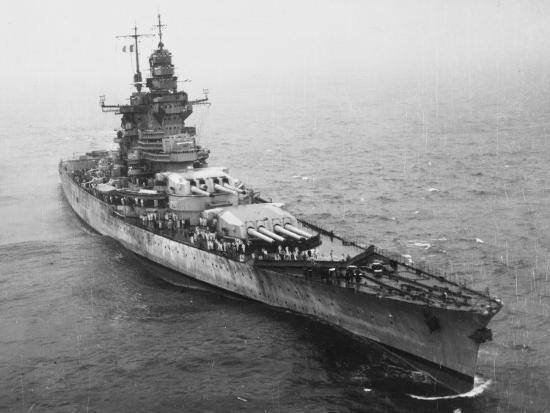 |
9 July 1940
The City of Lancaster was encouraging all residents to salvage
as much as possible for the war effort. The film “Raw Material
is War Material” had been screened in local cinemas and displays
in Woolworth’s window on Penny Street encouraged people to
recycle. Sadly many iron railings were cut down for the war
effort, never to be replaced.
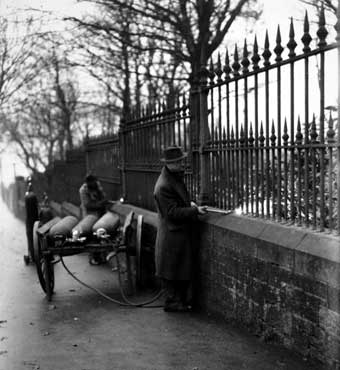 |
10 July 1940
The Battle of Britain began. In its opening phase the Luftwaffe
attacked coastal targets and shipping convoys in the English
Channel with the goal of reducing Britain's air defences and
naval supply lines ahead of a general air offensive.
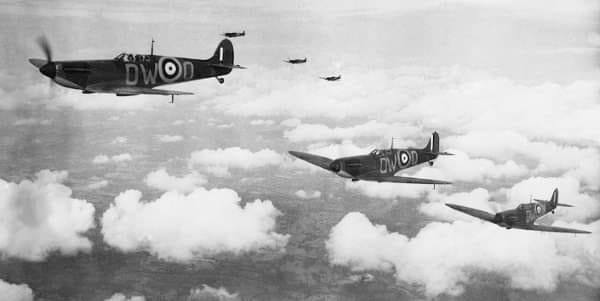 |
11 July 1940
The 5th Battalion of the King’s Own was headquartered in
Northallerton, North Yorkshire, and had received eight new
subalterns (junior officers) from the King’s Own Infantry
Training Centre. They were also ordered to find instructors to
train the Northallerton Local Defence Volunteers |
12 July 1940
German bombers attacked a shipyard in Aberdeen, killed 29 people
and injuring 100. Three RAF Spitfires from Dyce were
scrambled, one of which shot down one of the bombers, which
crashed in the newly built Aberdeen ice rink. |
13 July 1940
Italian forces crossed the border from Ethiopia into Kenya and
attacked the British garrison of Moyale…the war was now
spreading into Africa.
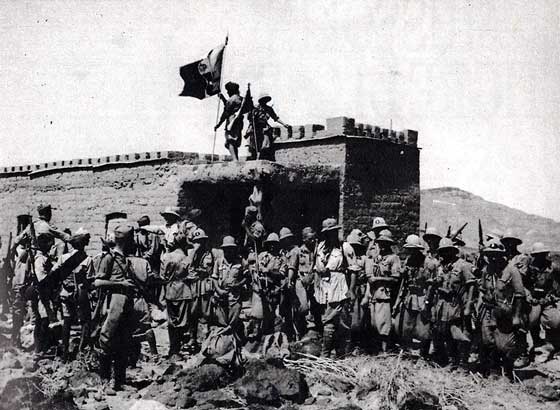 |
14 July 1940
Prime Minister Winston Churchill gave a radio address declaring
that Britain would fight on alone, saying that "be the ordeal
sharp or long, or both, we shall seek no terms, we shall
tolerate no parley; we may show mercy-we shall ask for none.
14th July 1940
8th Battalion, King’s Own: all Companies less B Company were
moved to new sectors
Battalion Headquarters and HQ Company moved to Sidbury, with a
detachment of HQ Company to Sidford.
A Company Colyton
D Company Seaton
C Company Beer
The Battalion was now attached to the 48th Division.
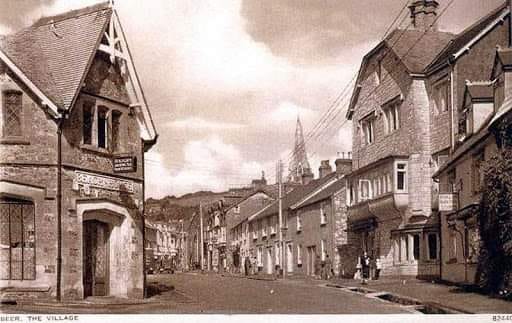 |
15 July 1940
Germans bombed Brighton for the first time.
The 8th Battalion, King’s Own, got to work in Devon with
numerous defence works including:
Wiring of beaches
Erection of pill boxes
Planning and erection of road blocks
Obstructions to potential landing grounds for hostile aircraft
Anti-tank traps
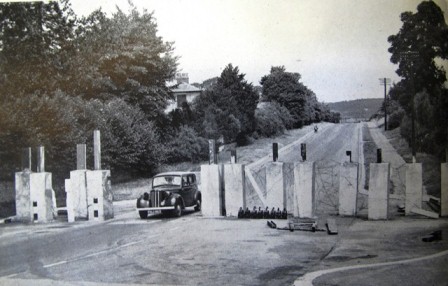 |
16 July 1940
Adolf Hitler issued Directive No. 16, authorizing Operation Sea
Lion, the cross-channel invasion of the British Isles. The
invasion relied upon the defeat of the Royal Air Force, the
Battle of Britain now underway in the skies above south-east
England.
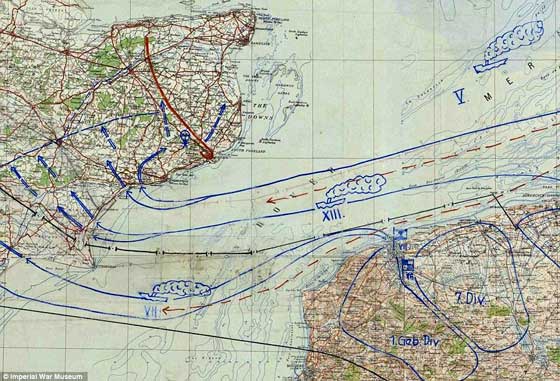 |
17 July 1940
The 5th Battalion, King’s Own, was located in Northallerton, and
the Commanding Officer attended a conference with the Local
Defence Volunteers in order to assist with a plan for local
defence constructions. |
18 July 1940
Royal Air Force Bombers conducted night time raids on the Krupp
armament works at Essen (photographed) as well as Bremen and
Hamm.
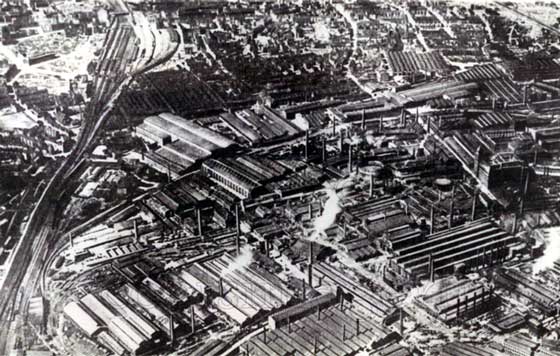 |
19 July 1940
Adolf Hitler made a speech to the Reichstag reviewing the course
of the war and then warned, "Mr. Churchill, or perhaps others,
for once believe me when I predict a great empire will be
destroyed, an empire that it was never my intention to destroy
or even to harm. I do realize that this struggle, if it
continues, can end only with the complete annihilation of one or
the other of the two adversaries. Mr. Churchill may believe this
will be Germany. I know that it will be Britain." Hitler then
appealed "once more to reason and common sense", saying, "I can
see no reason why this war must go on." He said if Churchill
brushed aside this appeal, "I shall have relieved my conscience
in regard to the things to come." |
20 July 1940
The British government banned the buying and selling of new
cars.
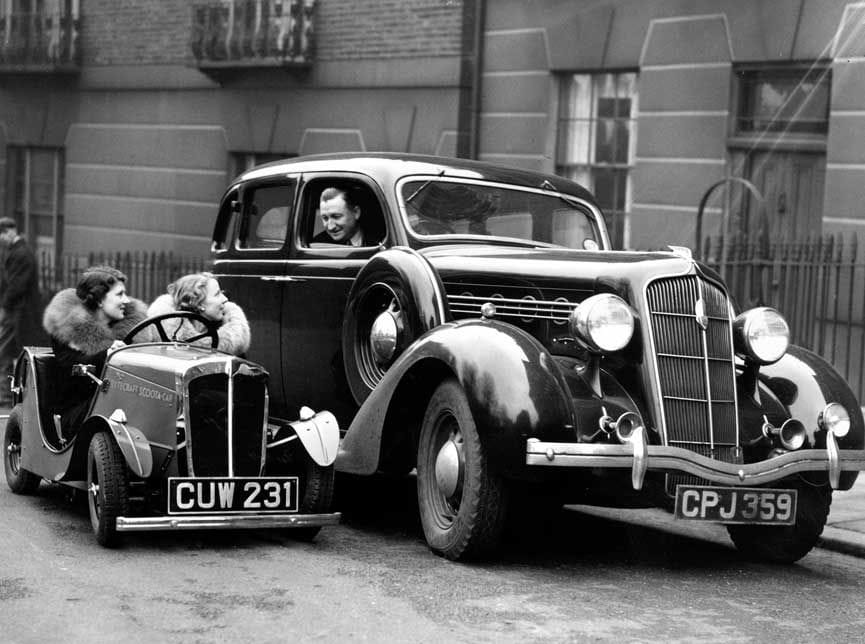 |
21 July 1940
The Special Operations Executive was created in the United
Kingdom. The purpose of SOE was to conduct espionage, sabotage
and reconnaissance in occupied Europe and later also in occupied
South East Asia. |
22 July 1940
The 5th Battalion, King’s Own, was based at Thirsk in North
Yorkshire, and the Battalion held a Mobile Column Exercise in
the Sutton Bank Area.
Sutton Bank was the location of the Kilburn White Horse, (centre
of image) dating from the 1800s and is visible for miles around.
In the peaceful interwar years Germany led the world in the
sport of gliding and many German glider pilots would have been
familiar with the horse when visiting the local gliding club, at
the top of Sutton Bank, in the 1930s.
With the outbreak of war, the authorities feared that the
Luftwaffe would use the horse as a known navigational landmark
for bombing raids, so camouflage was essential. It was partially
covered during the war to break up its outline and make it less
distinguishable from nearby rocky outcrops.
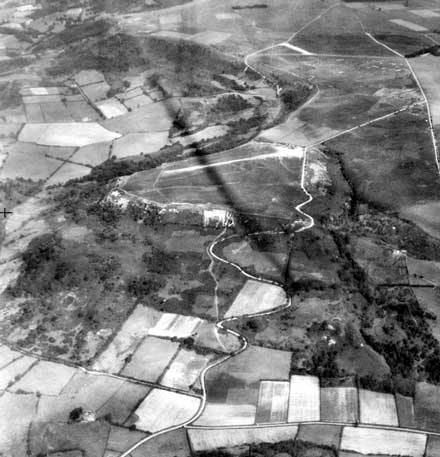 |
23 July 1940
The Local Defence Volunteers organisation was renamed the
‘Home Guard’ at Prime Ministers Churchill's suggestion. For many
members of the Home Guard this simply meant a change in their
“LDV” with a sewn on patch stating “Home Guard”!
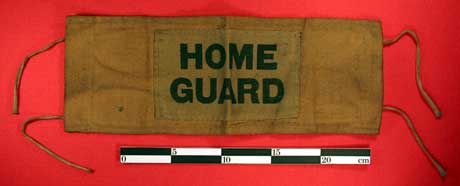 |
24 July 1940
The French passenger liner Meknés departed Southampton for
Marseilles for repatriation of the 1,277 captured French Navy
sailors aboard. The ship was torpedoed in the English Channel by
the German torpedo boat S-27 despite the Meknés' displays of
neutrality. Four British destroyers rescued the survivors but
416 perished.
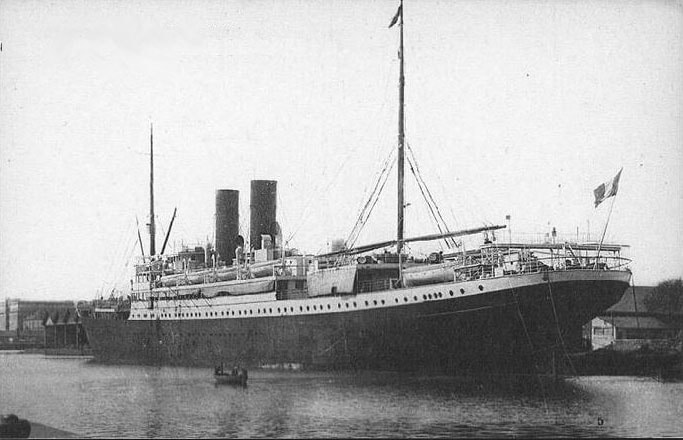 |
25 July 1940
A British coal convoy took heavy losses from German dive
bombers. The Admiralty ordered future convoys to take place at
night as a result. Ships lost included the SS Corhaven
(pictured) SS Henry Moon; SS Leo; SS Polgrange and SS Portslake.
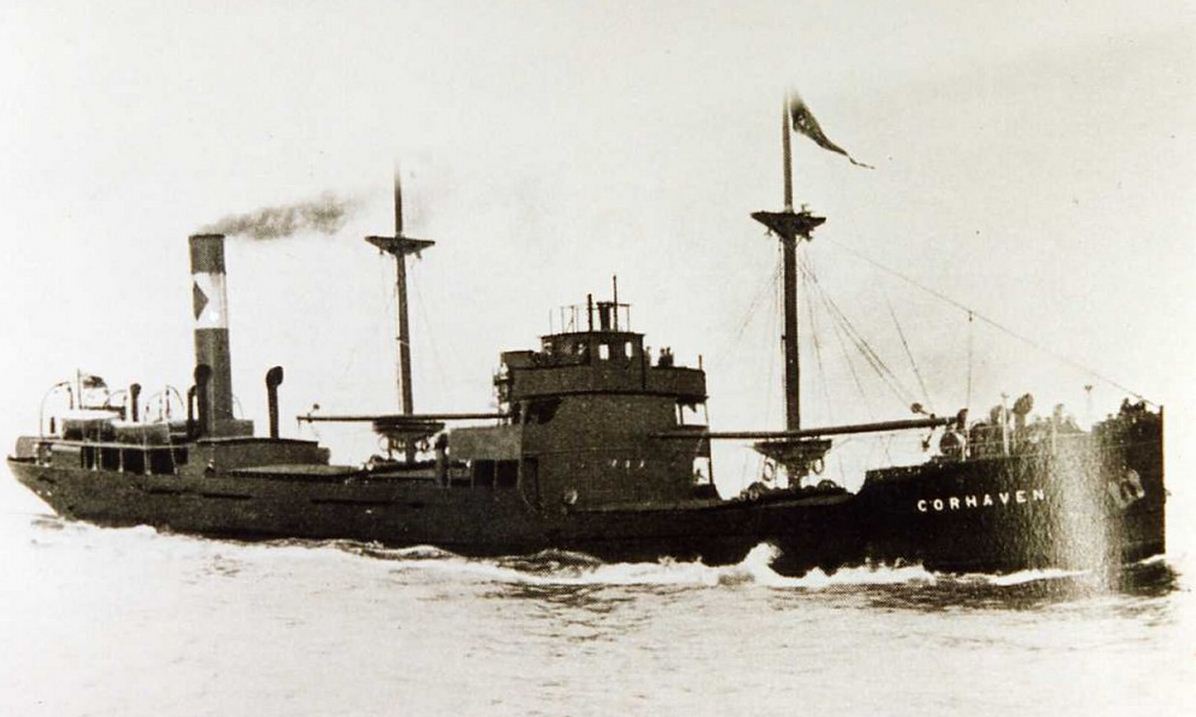 |
26 July 1940
The 5th Battalion, King’s Own held a Mobile Column Exercise in
the Thornaby Aerodrome Area.
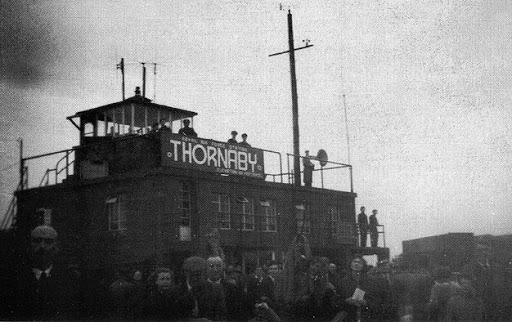 |
27 July 1940
The British destroyer HMS Codrington was bombed and sunk in
Dover by the Germans. The port came under air attack and a bomb
fell alongside HMS Codrington. The subsequent explosion broke
her back and she sank. She had only three men wounded. The
sinking was not made public until 18 May 1945. The wreck was
still evident in 1947.
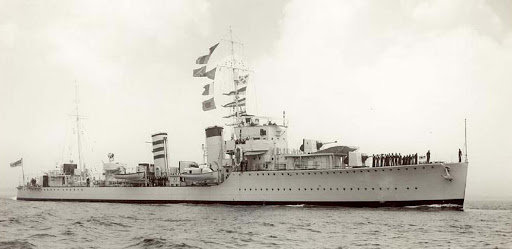 |
28 July 1940
The 5th Battalion, King’s Own, Church Parade took place in
Thirsk Parish Church. This was followed by an air display
showing the different types of aircraft in use.
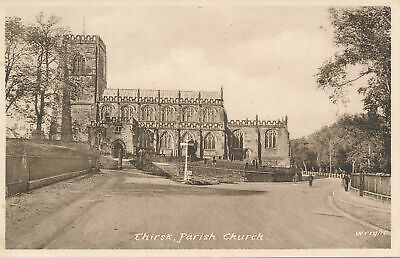 |
29 July 1940
Private Job Witton of the 5th King’s Own, who had been captured
on 29th May 1940, managed to escape with Sergeant Phillips of
the Royal Air Force and headed south east of Paris, kept to the
side roads and headed to Free France. Job made it home via
Gibraltar and was awarded the Military Medal for his escape.
|
30 July 1940
A question was asked in the House of Commons about the procedure
in obtaining the names of Prisoners of War from Germany. The
reply was detailed:
The German Prisoners of War Information Bureau furnish lists of
British prisoners of war to the United States Embassy at Berlin
as representing the Power in charge of British interests. These
lists are normally transmitted to the United States Embassy in
London by mail and sent by the Embassy to the British Prisoners
of War Information Bureau. The lists are then passed on to the
Casualty Branch of the Service concerned. At the same time as
the lists are handed to the United States Embassy in Berlin, a
duplicate is sent by post, occasionally by telegraph, to the
International Committee of the Red Cross at Geneva which also
issues postcards to be filled in by prisoners on first capture.
Under arrangements recently made details of identification are
extracted from the lists and postcards by the International
Committee and telegraphed to the Prisoners of War Information
Bureau in London and the lists are being sent by the United
States Embassy at Berlin to Lisbon and forwarded from there to
London by air mail. In consequence of the large number of
prisoners captured by the Germans, there has been considerable
delay in the transmission of the lists to the United States
Embassy at Berlin, but lists containing the names of about
two-thirds of all British prisoners of war have now reached
Geneva. It is hoped that the methods which I have described will
result in complete lists of all prisoners being received by the
Casualties Branches of the Service Departments concerned in the
near future. |
31 July 1940
The British began the action code named ‘Operation Hurry’, with
the goal of ferrying fourteen Hawker Hurricane aircraft to Malta
for the garrison's defence from the aircraft carrier HMS Argus.
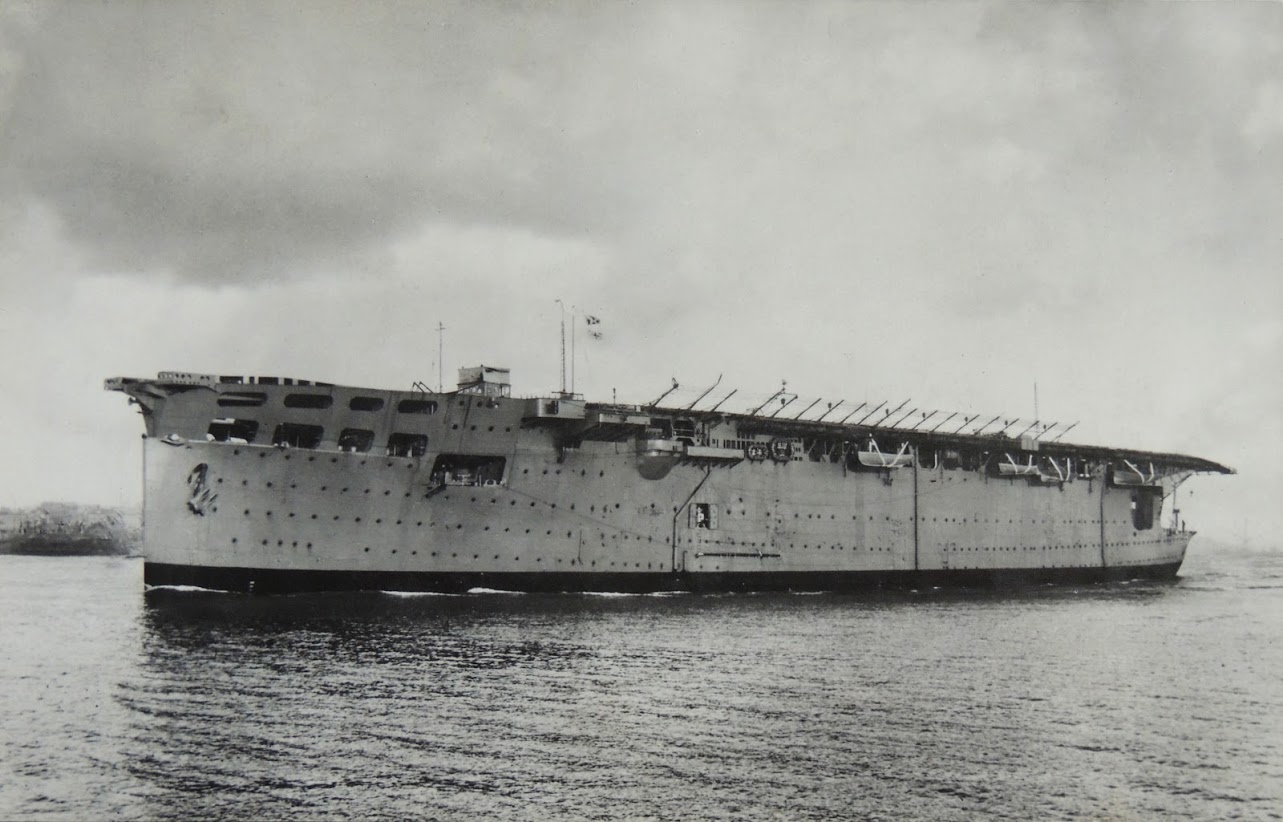 |
























